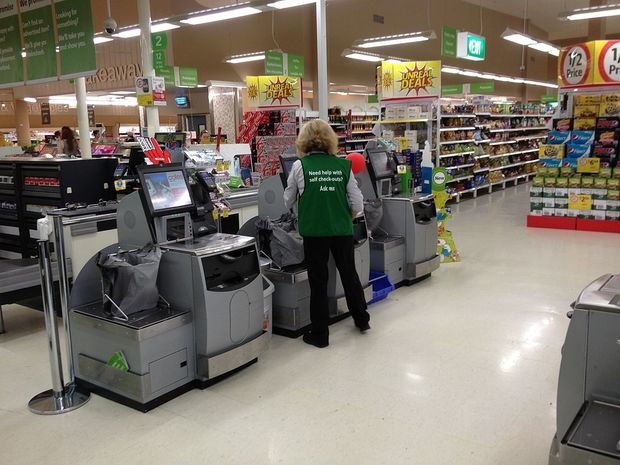''At the moment, it’s not going to lead to wholesale replacement of all the workers''
Amazon's newest automated store fuels discussions about the future of human workers in retail
Usually, when automation comes to an industry, it reduces the importance of human workers and finally leads to a decrease in jobs. In retail, the situation used to be less certain because tasks there are often more complex and can't always be performed by machinery, but the development of artificial intelligence (AI) makes retail workers more vulnerable.
At the end of January, Amazon.com opened its first automated grocery store Amazon Go in Seattle. The latest creation of Amazon's CEO Jeff Bezos will surely fuel the debate about automation and the future of work and entail implications for economists, employers and policymakers, considers The New Yorker. Retail employees and those who work in supporting roles behind the scenes of retail businesses are now likely to be directly affected.
According to Daron Acemoglu, an economist at the Massachusetts Institute of Technology specialising in automation and the labour market, retail was delayed in terms of high-tech automation. It used to be more resistant to automation than other industries due to unpredictable physical environments and constant customer interactions. A lot of clerical chores, such as cashiers, have already been automated, but a lot of other areas like grocery stores and malls are behind manufacturing in terms of introduction of robots because the tasks performed by people there are often more complex and include assisting customers, answering questions or restocking shelves. ''At the moment, and probably fortunately, it's not going to lead to wholesale replacement of all the workers,'' Acemoglu said adding that Amazon Go was still a signal of what's to come.
Self-checkout kiosks already exist in small and big supermarkets worldwide, but Amazon Go eliminated the whole checkout process and made shopping more attractive to consumers, as there is no more long line to pay at the end. Customers' phones are scanned at the entrance, and then the shoppers are automatically charged for whatever they take from shelves and bring home. There are still a few human workers who deal with glitches, answer questions and check the age of those who want to buy alcohol.
The conventional belief among economists used to be that technological advances had so far created more jobs than they eliminated. Human workers often switch to more sophisticated roles that couldn't be automated. However, given the fast development of robotics and AI technologies, many economists are now acknowledging that the balance could start moving the other way. In their joint material Artificial Intelligence, Automation and Work, Daren Acemoglu and Pascual Restrepo of Boston University concluded that automation had the potential to create greater wealth while also increasing economic inequality.
On the one hand, the rise of machine labour will inevitably reduce the demand for human workers. But the appropriate investment in education that gives workers new useful skills could hold back unemployment and inequality. ''If we do not find a way of creating shared prosperity from the productivity gains generated by AI, there is a danger that the political reaction to these new technologies may slow down or even completely stop their adoption and development,'' the researchers warn. Thus, the future of automated retail depends mostly on politicians and the public policy choices they make on the tax code, education policy and infrastructure spending.
